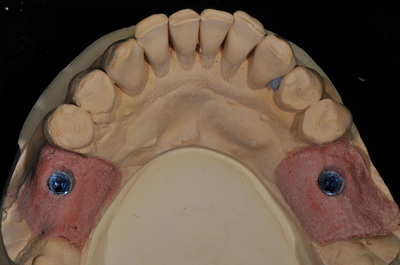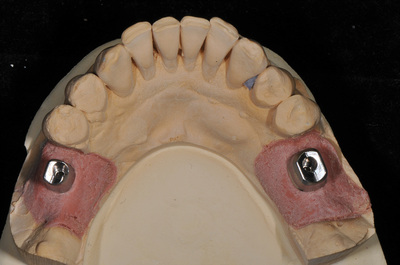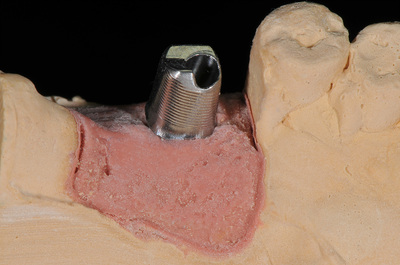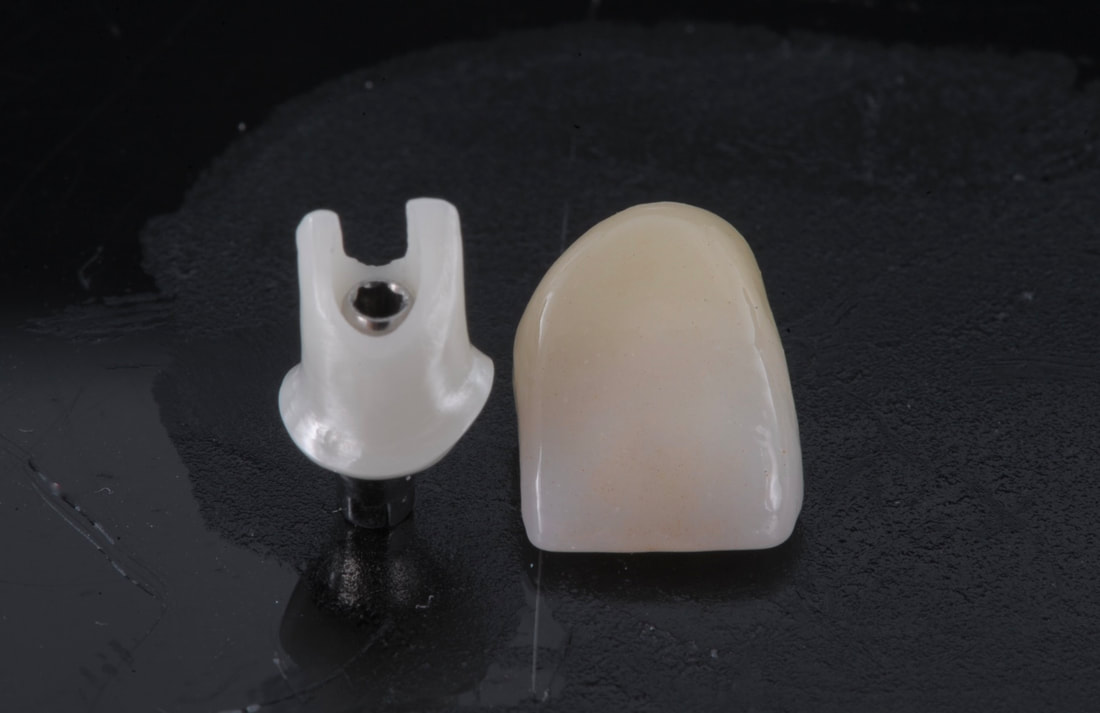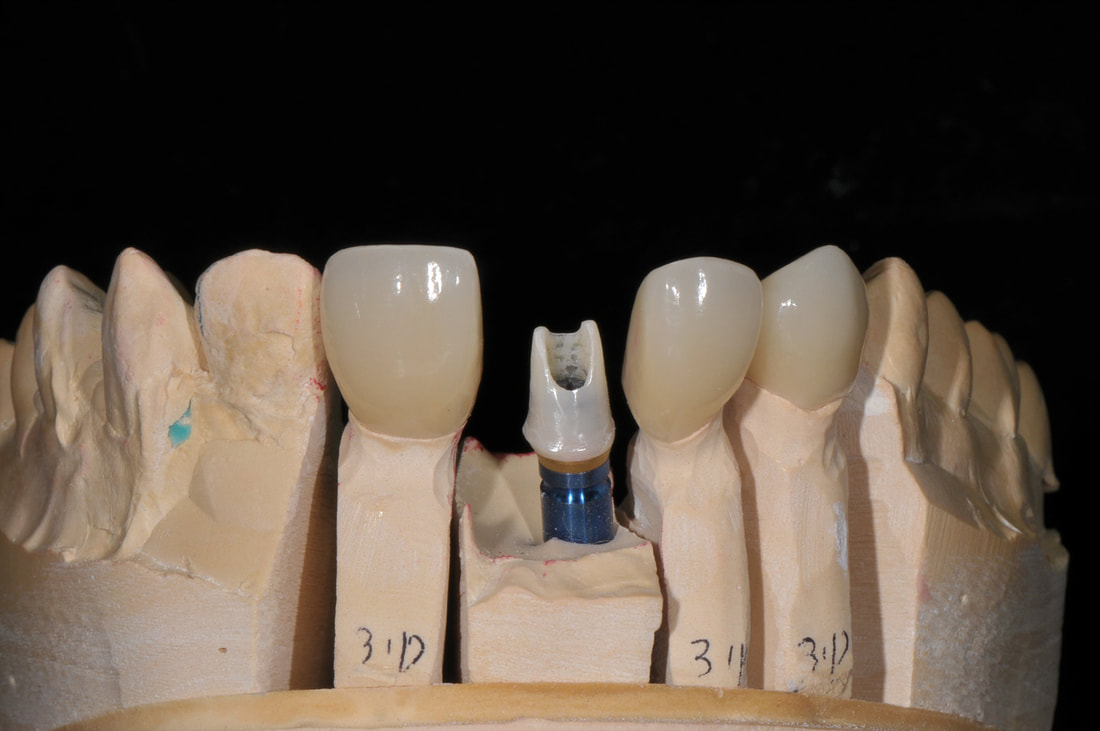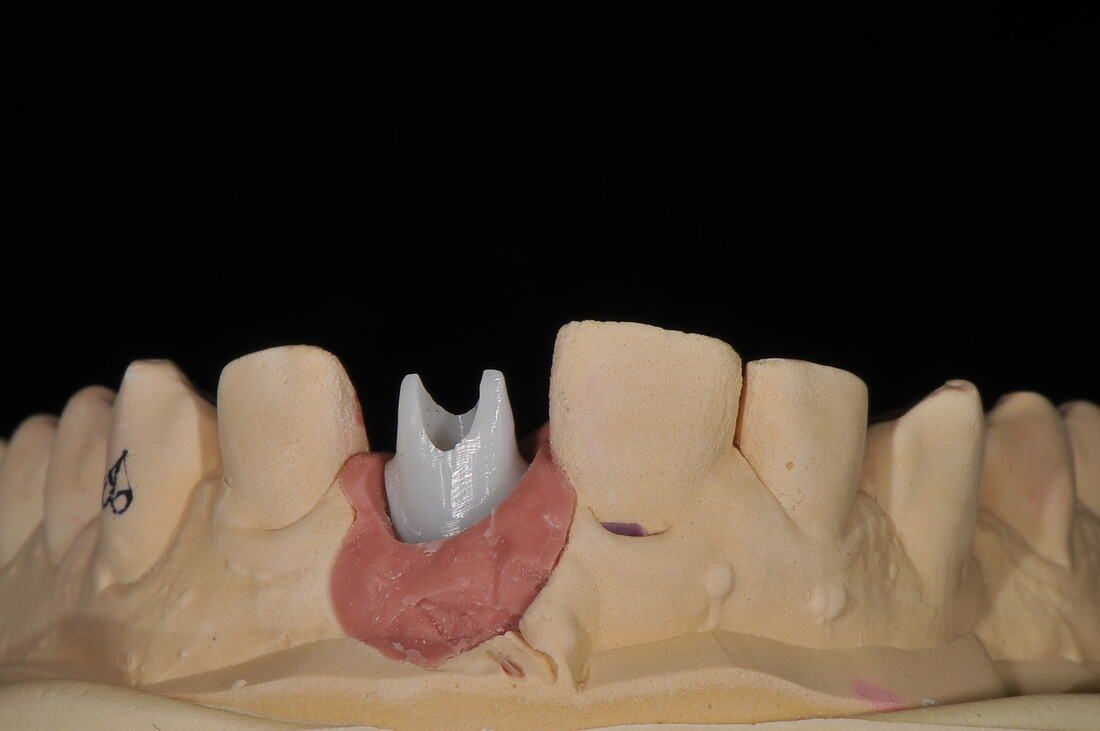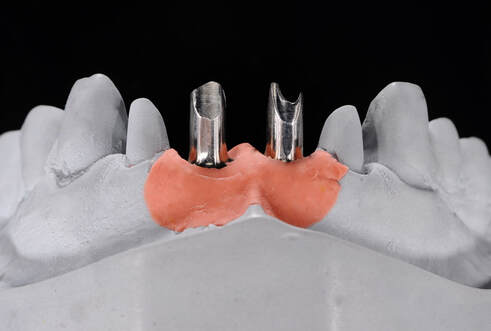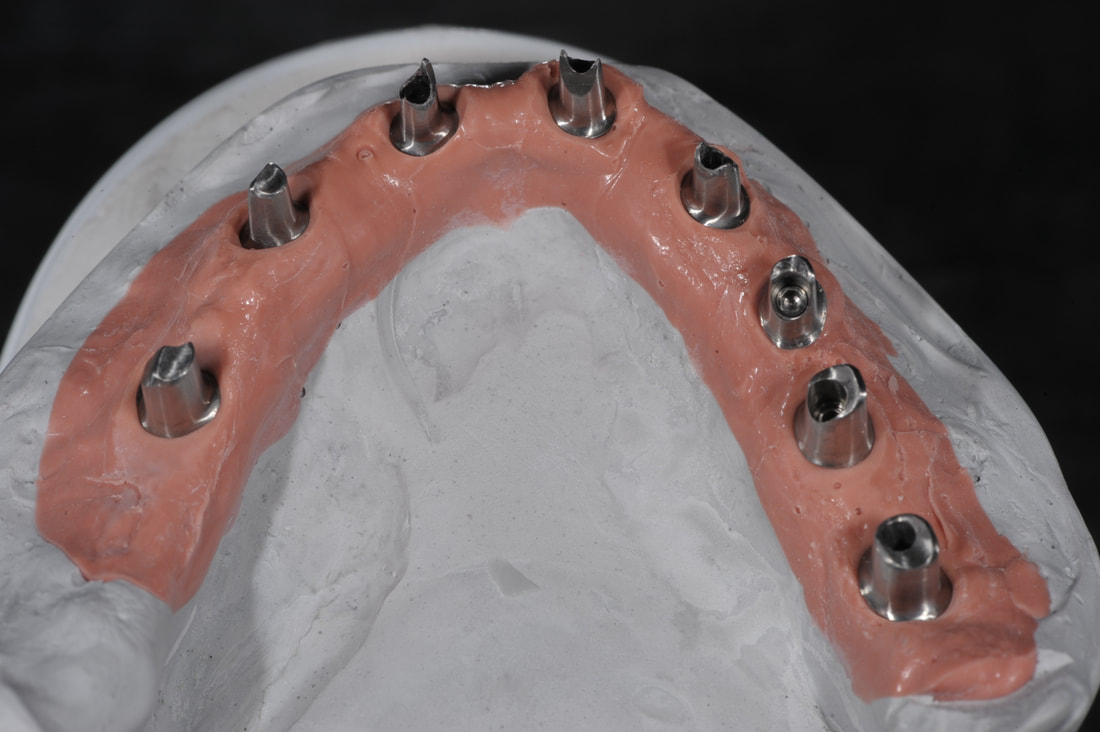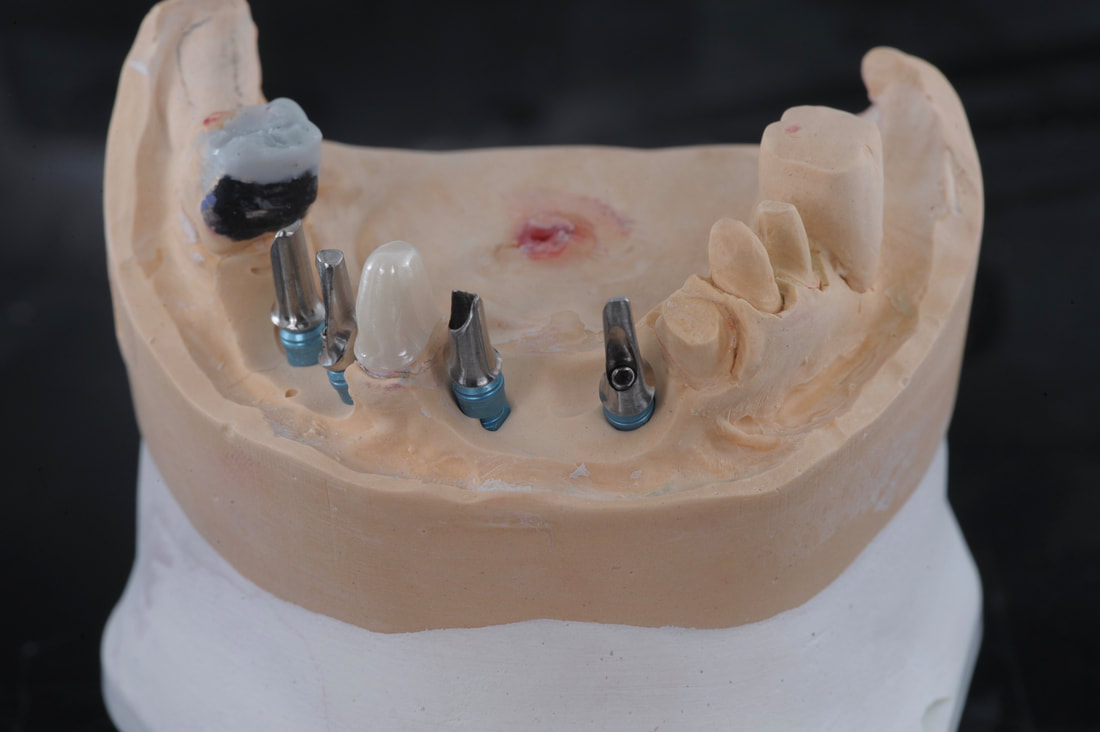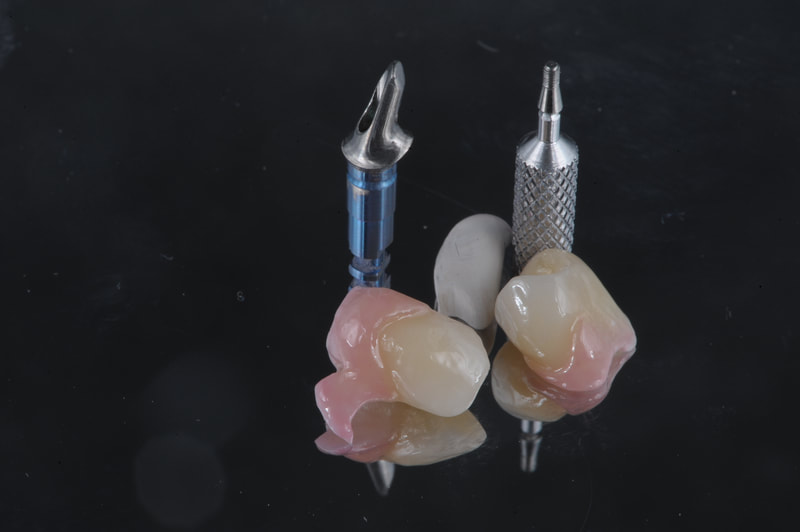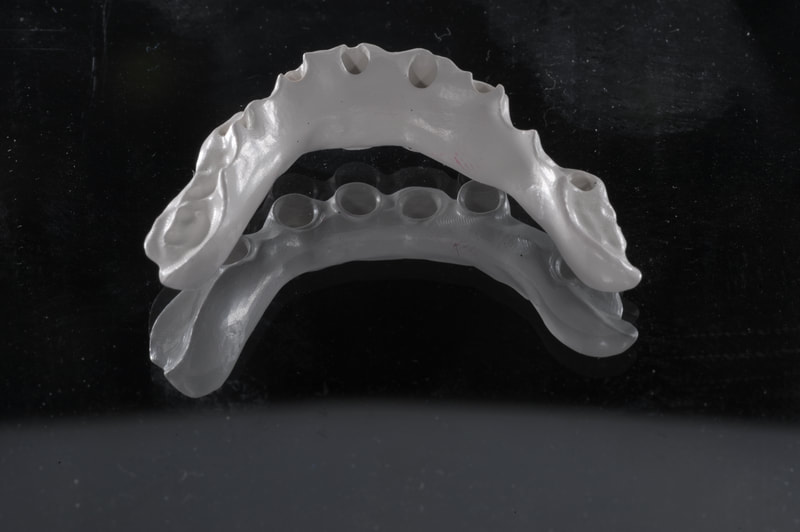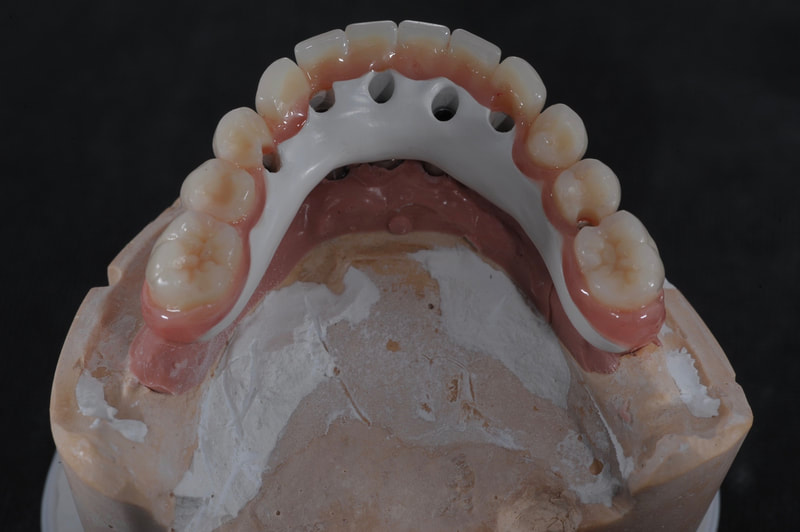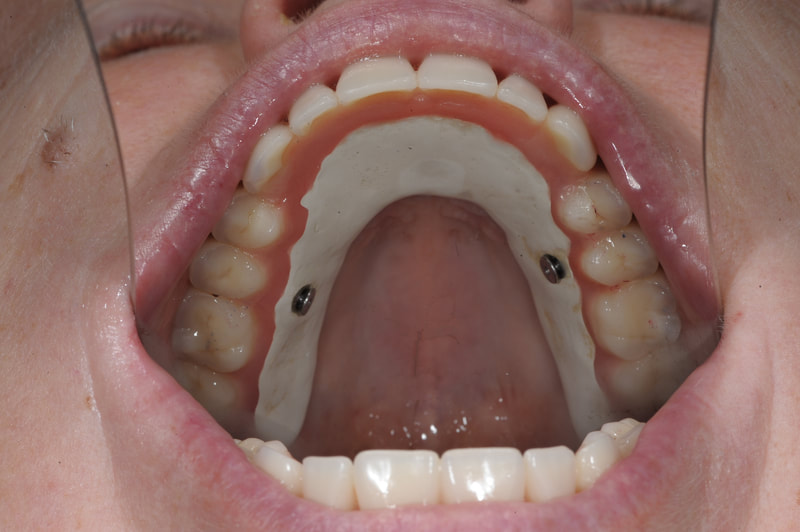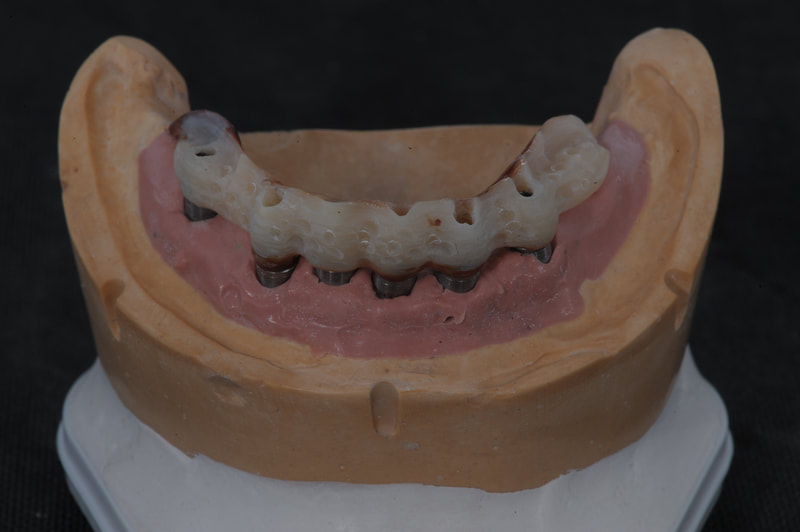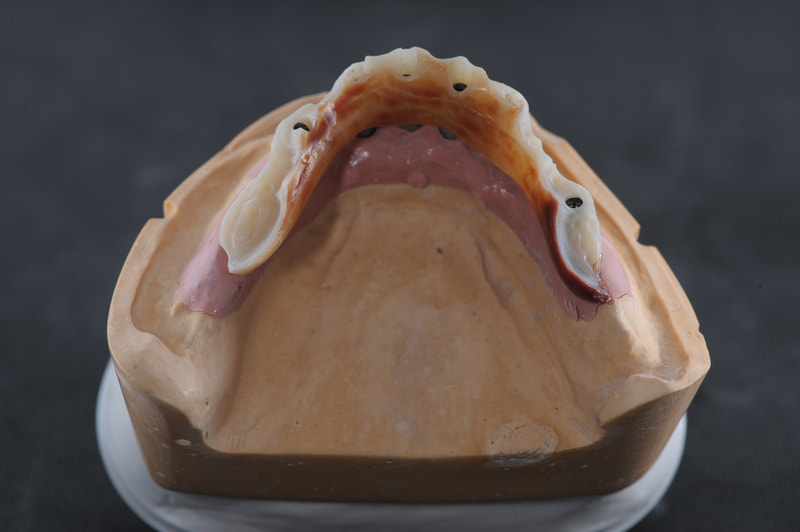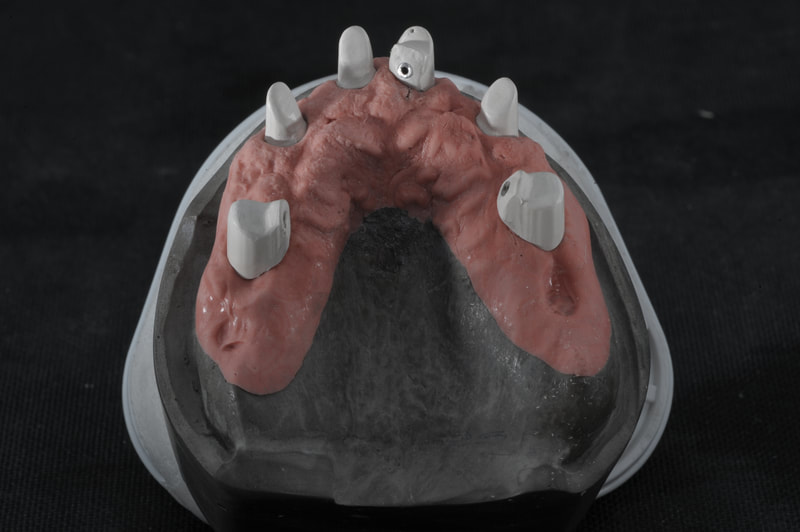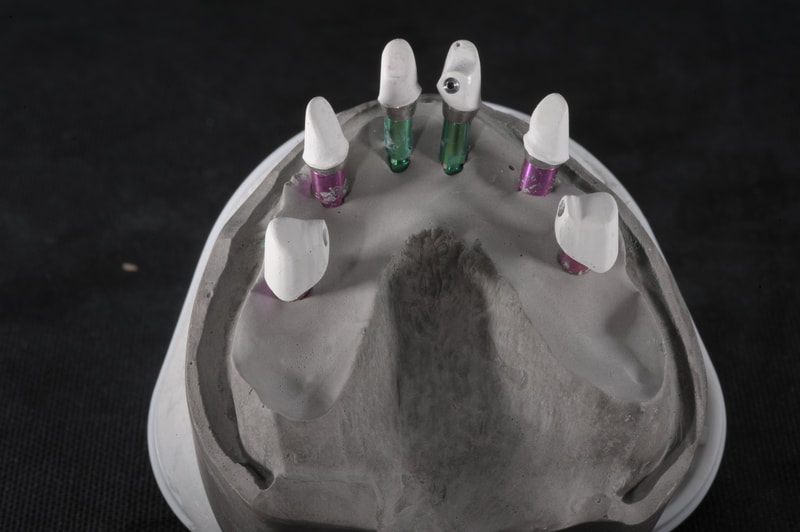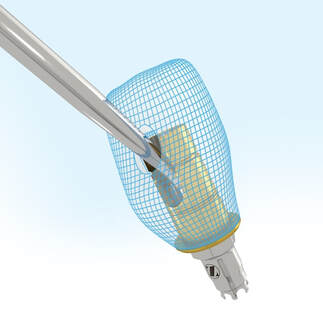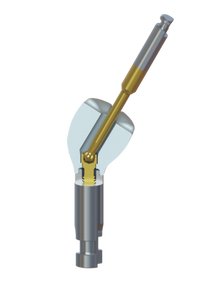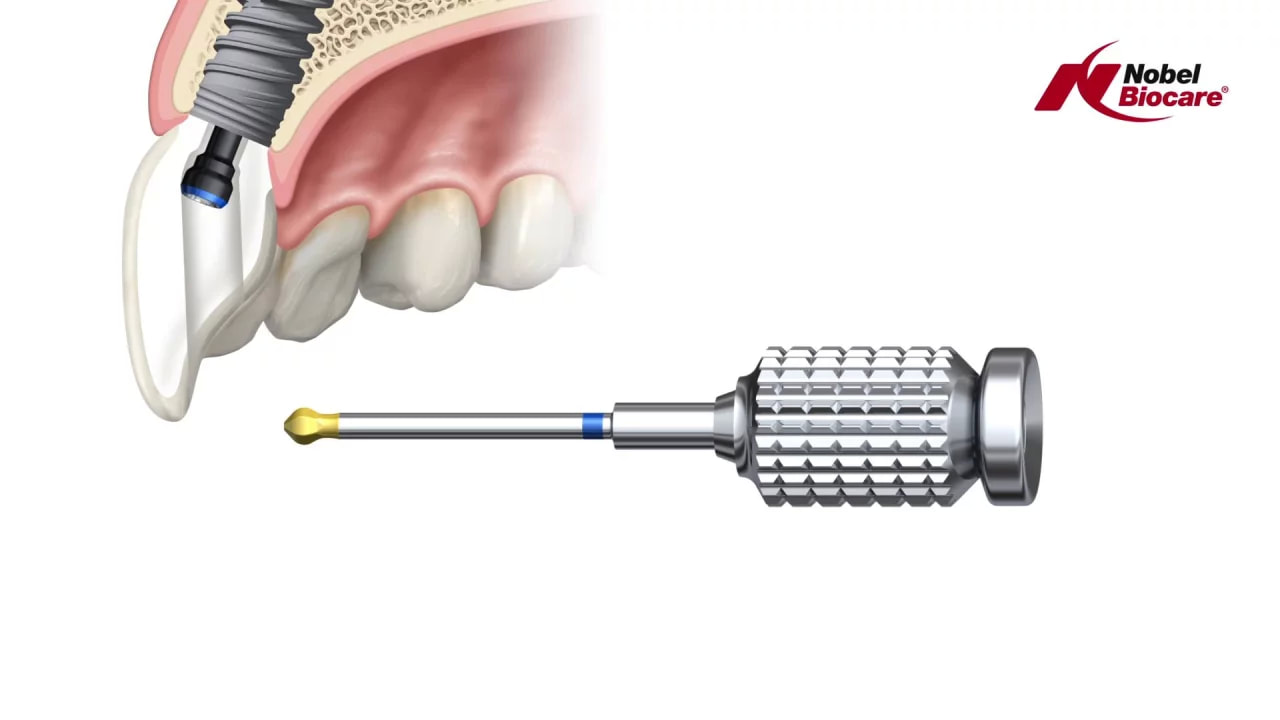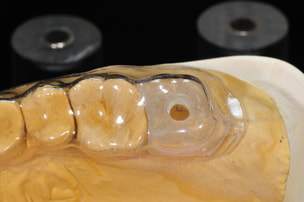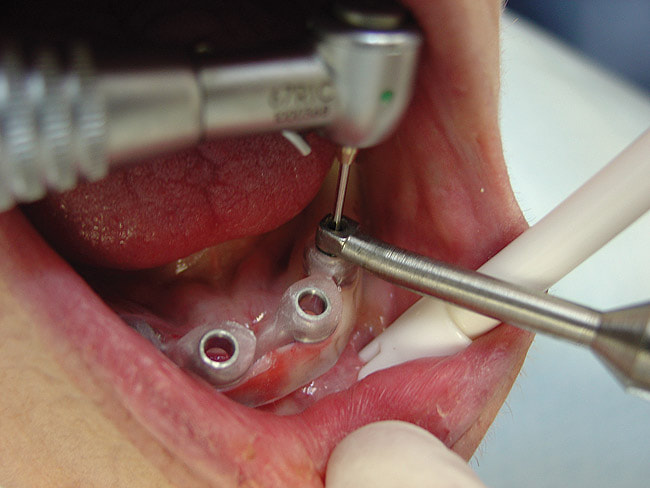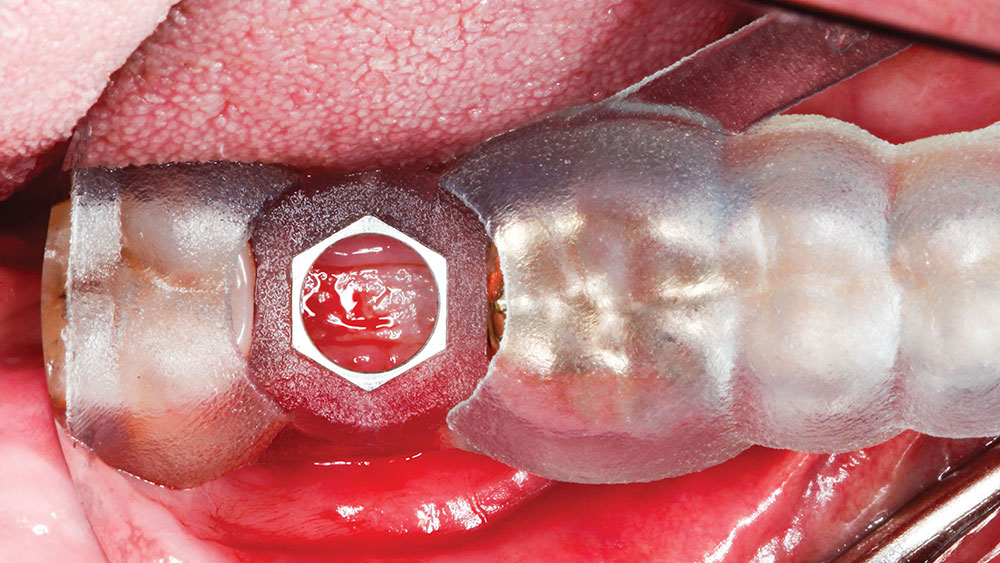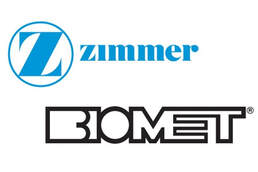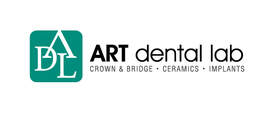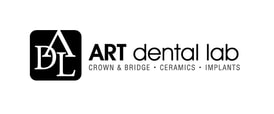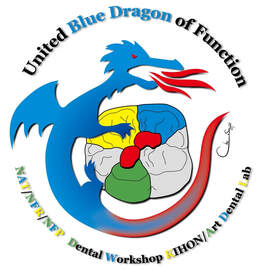Implant Supported Crown/Bridge Restorations
Titanium Abutments
Titanium is a type of metal often used in dental implants because its properties are known to fuse well with human bone. It has been used for decades and it is very durable and lightweight. Titanium abutments are normally used for posterior restorations.
- Pros: High success rate. Stronger option for implants. Long-lasting. Strong and durable yet lightweight.
- Cons: Allergic reaction to titanium (rarely). Interference with autoimmune disease.
Zirconia Abutments
Zirconia abutment is ideal for avoiding the silver titanium showing through the restoration, and chances of it peeking out along the gingival margin. Although zirconia has not been used in implant dentistry as much as titanium, it is still a viable option.
- Pros: Very esthetically pleasing. No known allergic reaction. No visible metal parts exposure. Accumulate less dental plaque compared to titanium.
- Cons: Not as durable as titanium abutments. Not yet proven to last longer than titanium abutments.
UCLA Gold Casting Abutments
The UCLA abutment is a castable abutment. It is offered with a machined base, made out by different metal alloy such as titanium, gold, or chrome cobalt. This type of abutment can be used for single to multi-unit screw retained/cement retained restorations. It may correct angles up to 30 degrees when cast as a custom abutment.
- Pros: Corrosion resistant. Reduced complications with surrounding tissues. Minimize the possibility for irritation and titanium allergic reaction.
- Cons: Time consuming compared to Cad/Cam milled. Cost more than Cad/Cam milled abutment due to cost of alloy and labor.
BioHPP Implant Abutment with Lingual Screw
The high-performance polymer BioHPP [PEEK (polyether ether ketone)] was developed especially for intra-oral use by Bredent. The innovative material forms the basis for pre-fabricated and individual abutments, as well as suprastructures on both fixed and removable implants. BioHPP material is strong, light weight, and has tooth color for great esthetic.
- Pros: Very light weight. Similar elasticity as bone. Great esthetic. High strength. No corrosion. Low moisture absorption.
- Cons: Time consuming. High cost of production. Complicated.
Angulated Screw Channel (ASC) Implant Abutments
Solve the esthetic challenges faced when screw-retained solutions are placed in the anterior and improve occlusal access in the posterior. The angulated screw channel (ASC) provides the option to place the screw access hole anywhere between 0 to 25 degree angle. This means you can now restore almost any situation with screw-retained restoration and remove known risks associated with excess cement. The angulation allows the use of screw-retained restorations in the esthetic zone by avoiding a buccal screw access point, and the metal adapter.
- Pros: Ability to have screw-retained anterior restoration. Ease of repair, maintenance, cleaning and alterations can be done without damaging the substructure, restoration or implants.
- Cons: Increased treatment costs. Difficulty in retrievability in case of excess cement. Unknown lifespan since this is new technology.
Implant Stent (Surgical Guide)
An implant stent is an appliance used for radiographic evaluation during treatment planning for implant placement and during surgical procedures to locate optimal implant placement site.
- Pros: Ability to locate accurate implant site. Controls the osteotomy in precise accordance with the pre-planned implant position. Controls the depth and angulation of the implant.
- Cons: Responsibility issues if implant stent is mis-fabricated.
Implant Warranty at Art Dental Lab
Art Dental Lab offers both generic and authentic implant parts. Both generic and authentic implant abutments are subject to lifetime warranty. Warranty certificate and/or sticker will be enclosed along with the case. Please feel free to contact us if you have any further questions/concerns.

